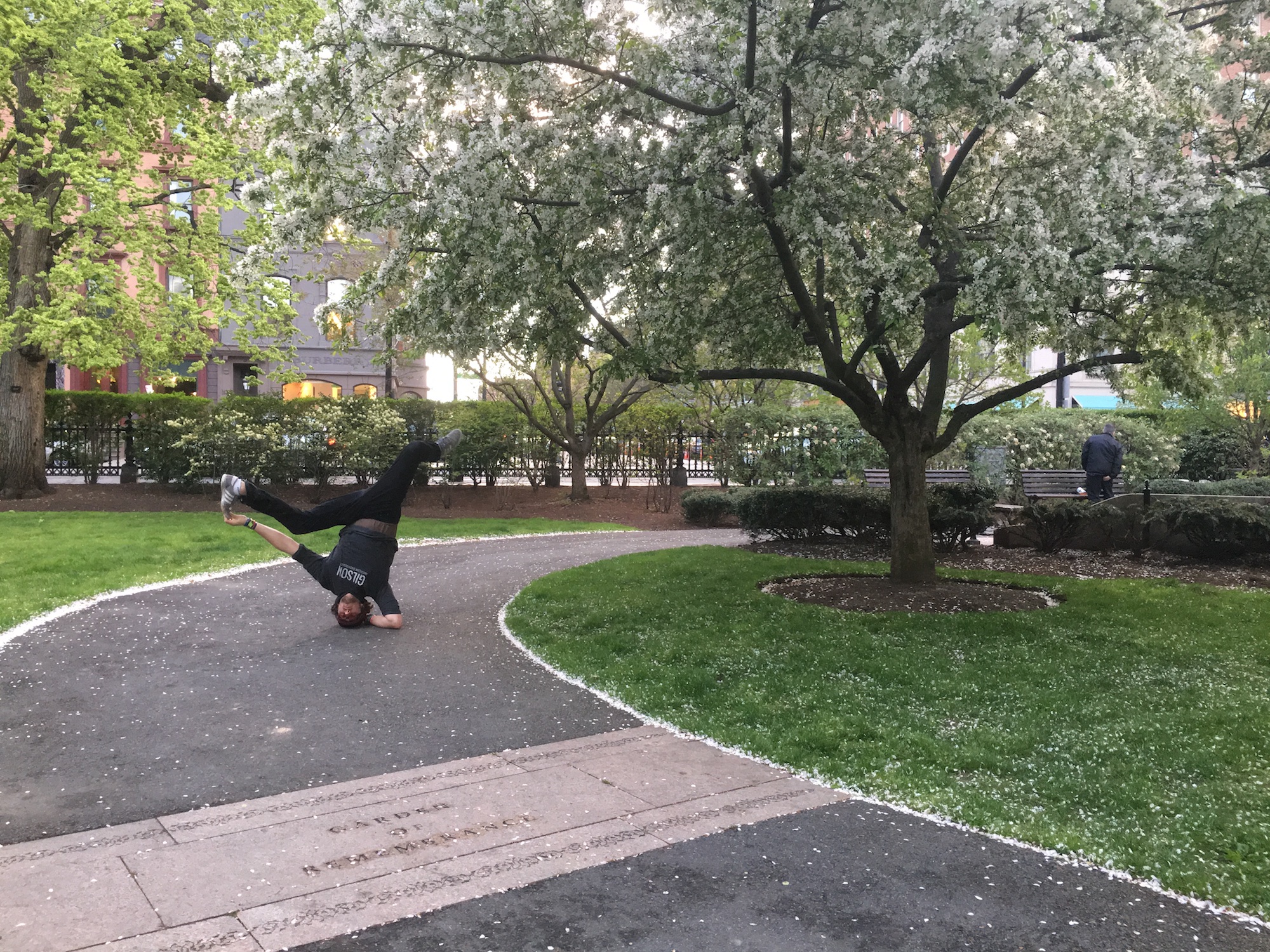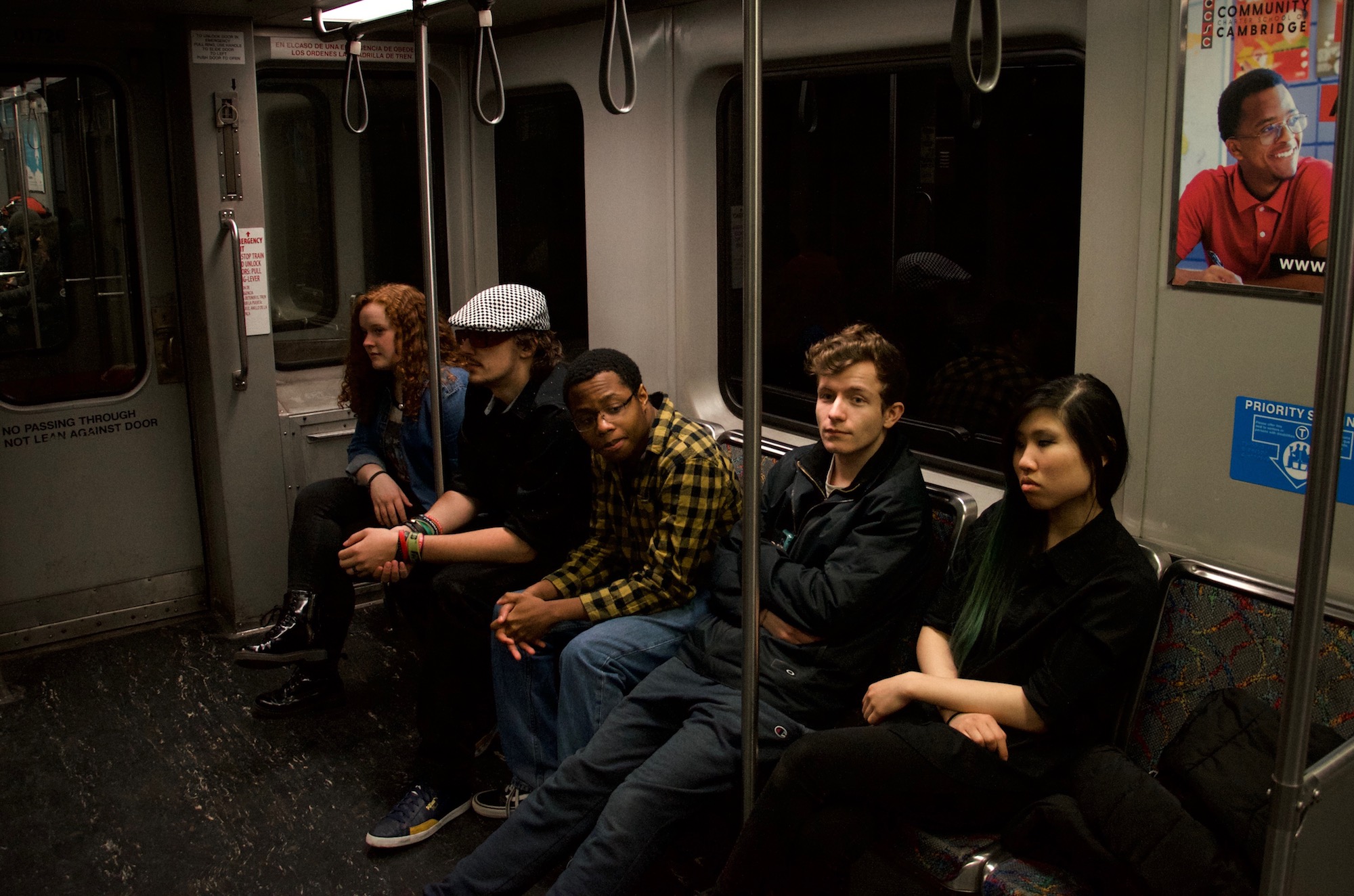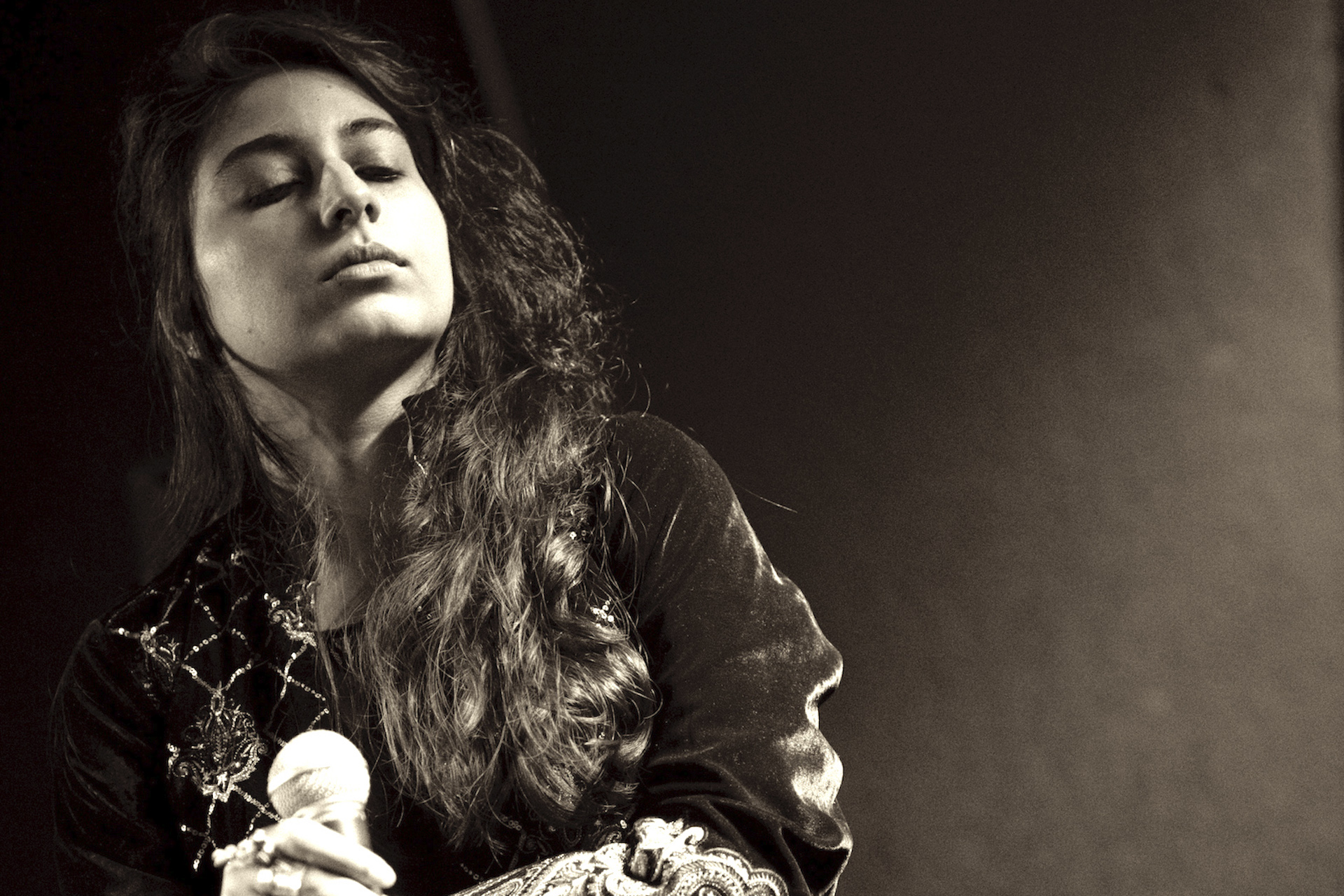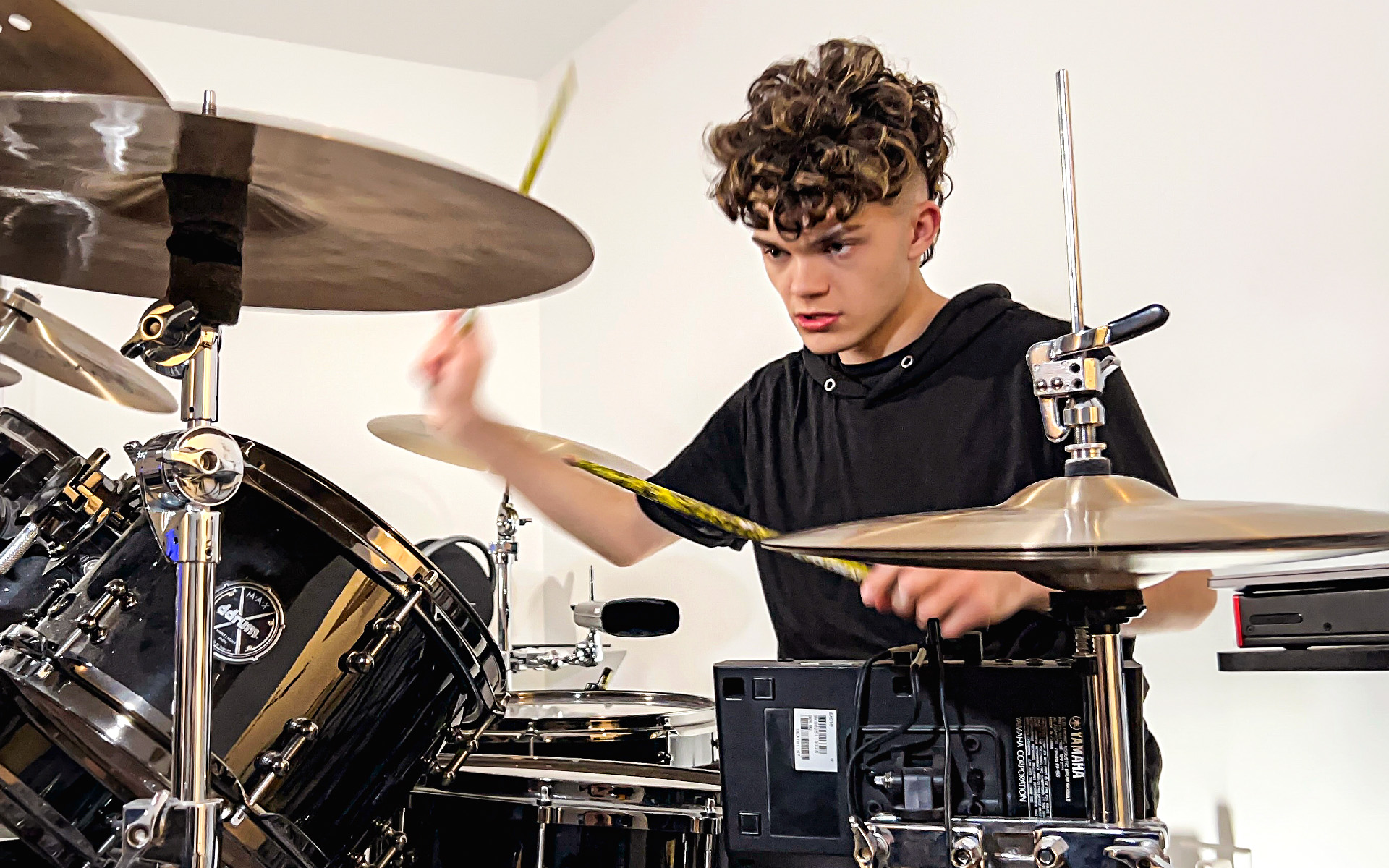This fall, Josh Sebek will return to the Berklee campus in Boston to start his sophomore year as a Music Production and Engineering (MP&E) student. Though this is Josh’s second year on campus, he is no stranger to taking classes through Berklee. Right out of high school, Josh completed his Advanced Certificate in Music Production using Pro Tools, a stepping stone that led him to attend Berklee’s Boston campus.
“Coming out of high school I was like, ‘Okay, well, I’m not super ready to go [to Boston] and make that kind of a move, so I’m going to do some online classes,’” says Josh. “I found the certificate online, and I ended up taking it and falling in love with it.”

He had also fallen in love with the Boston campus when he first toured Berklee on a field trip with his high school jazz band, but Josh had to consider a few more things than the average college freshman: he has a visual impairment called incomplete achromatopsia.
“It’s a bit of a rare one, but it’s basically a slew of things,” he says. “I’m colorblind, I’m very nearsighted, I’m very sensitive to light . . . The cones in my eyes don’t work. They don’t receive anything, so I’m stuck with everything very bright. It’s like an oversaturated camera all the time, so I wear tinted glasses to combat that as well as the nearsightedness. My eyes are always shaking, so reading sheet music has always been a problem. It kind of sucks, but it makes me who I am and I wouldn’t trade it in if I had the chance to.”
Josh grew up in a small town in Ontario, Canada and found ways to pursue the arts, though they were not always easy to find in his sports-dominated high school. He played the drums, breakdanced, and discovered his passion for producing electronic music.
“I really loved the whole music software side of things and being able to create my own stuff,” says Josh. “So, I started doing that for a while and trying to find my voice. Funny enough, it went from producing dubstep to downtempo chillout stuff. It’s not even remotely close to the genre that I started with. After that, I just went, ‘Oh, I want to look into more of this production stuff.’”
Josh was able to further his education in music production from home through Berklee Online while teaching breakdancing to elementary school kids for two years. The combination of learning and teaching music and dance gave him the boost of confidence he needed.
“As a breakdancing teacher, I was able to become more confident and come out of my own shell,” says Josh. “That was the thing that made a difference for me. It made me say ‘yes, I can do this. I can go to school. I can make this move. I can be successful here.’ That was the big push for me.”
During his time as an online student, Josh explored the Berklee campus in Boston several times, twice through Berklee Onsite. During this annual gathering, Berklee Online students have the opportunity to meet their professors, classmates, and attend in-person sessions.
“I knew I wanted to go to campus,” says Josh. “You get the connections prior and then you go down for Onsite. The biggest thing for me was being able to take a workshop with the professor that I had been studying with online for so long and seeing through video chat every week.”
When Josh arrived in Boston for his first semester in fall 2018, he was already orientated with the campus and had a network of friends and instructors from his online classes.

“Everyone around us in the whole Berklee circle is there to help each other,” says Josh. “It’s not a competitive environment. It’s a very collaborative, very welcoming community. Most people I run into don’t even really realize or even care that I’m visually impaired.”












